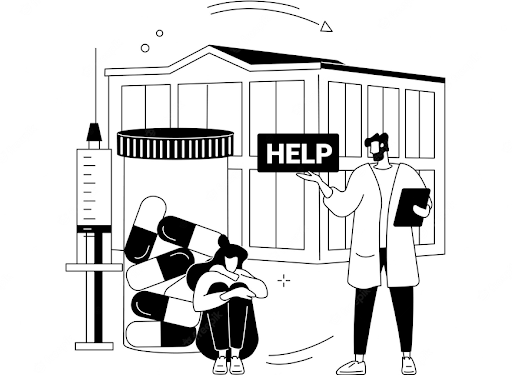Drug addiction is a complex and overwhelming problem that affects millions of people worldwide. For those who are struggling with addiction, drug rehabilitation centers offer a ray of hope, providing a safe and supportive environment where individuals can receive the help and guidance they need to overcome their addiction and reclaim their lives. These centers offer a range of services and treatments, including detoxification, counseling, therapy, and aftercare support, all of which are designed to help patients achieve lasting recovery. While drug rehabilitation can be a challenging and sometimes difficult journey, it is also one that can be incredibly rewarding, allowing individuals to break free from the cycle of addiction and build a brighter future. In this article, we’ll explore the many benefits of drug rehabilitation centers and why they are such an important resource for those who are struggling with addiction.
Types of Drug Rehabilitation Centers
There are various types of drug rehabilitation centers available for individuals seeking treatment. These include inpatient, outpatient, and residential treatment centers. Inpatient treatment centers are designed for individuals who require 24-hour medical care and supervision. Patients reside in the facility for a specific period, typically ranging from a few weeks to several months, depending on their treatment plan. Outpatient treatment centers, on the other hand, allow patients to receive treatment on a part-time basis while still maintaining their daily routines. Residential treatment centers provide patients with a structured living environment, where they can receive intensive therapy and support, and stay for an extended period. Trucare Trust is one of the leading and best De-Addiction Centre in Mumbai for alcohol and drug addiction treatment.
Each type of treatment center has its benefits and drawbacks, and the choice of the facility will depend on the individual’s specific needs and circumstances. For instance, inpatient rehabilitation centers are ideal for those with severe addiction who need close medical supervision, while outpatient treatment centers are best suited for those with less severe addiction who can manage their daily routine outside of the facility.
Benefits of Seeking Professional Help
Drug addiction is a complex and challenging condition that requires professional help to overcome. While it may be tempting to try and quit on your own, this can be dangerous and often leads to relapse. Professional drug rehabilitation centers offer patients a range of benefits, including:
Medical Supervision
Drug rehabilitation centers provide patients with 24-hour medical supervision, ensuring that they receive the medical care and attention they need during the detoxification process.
Counseling and Therapy
Drug addiction is often accompanied by underlying mental health issues, such as depression and anxiety. Professional drug rehabilitation centers offer counseling and therapy sessions, where patients can work through these issues and develop healthy coping mechanisms.
Supportive Environment
Drug rehabilitation centers provide patients with a supportive environment, where they can connect with others who are going through similar struggles. This helps to create a sense of community, which is vital for long-term recovery.
Aftercare Support
Recovery from drug addiction is an ongoing process that requires ongoing support. Drug rehabilitation centers offer aftercare support, which includes follow-up counseling, support groups, and other resources that help patients stay on track.
How to Choose the Right Rehabilitation Center
Choosing the right rehabilitation center is crucial to achieving lasting recovery. There are several factors to consider when selecting a facility, including:
Accreditation and Licensing
Ensure that the rehabilitation center is accredited and licensed by the relevant authorities. This ensures that the facility meets the required standards for providing safe and effective treatment.
Treatment Programs
Choose a rehabilitation center that offers a treatment program that suits your needs and circumstances. For instance, if you have a severe addiction, an inpatient rehabilitation center may be the best option.
Location and Accessibility
Choose a rehabilitation center that is located in a convenient location and is easily accessible. This makes it easier for you to attend treatment sessions and access aftercare support.
Cost and Insurance
Consider the cost of treatment and whether your insurance covers it. Some rehabilitation centers offer financing options to make treatment more affordable.
Understanding the Rehabilitation Process
The rehabilitation process is a multi-step process that is designed to help patients overcome addiction and achieve lasting recovery. The process typically involves the following steps:
Assessment
The first step in the rehabilitation process is the assessment. This involves evaluating the patient’s physical and mental health, as well as their addiction history, to determine the appropriate treatment plan.
Detoxification
The next step is detoxification, which involves removing all traces of drugs from the patient’s system. This can be a challenging process, as patients often experience withdrawal symptoms during this time.
Counseling and Therapy
After detoxification, patients undergo counseling and therapy sessions, where they work through underlying mental health issues and develop healthy coping mechanisms.
Aftercare Support
The final step in the rehabilitation process is aftercare support, which includes follow-up counseling, support groups, and other resources that help patients stay on track.
Inpatient vs Outpatient Rehabilitation
Inpatient and outpatient rehabilitation are two of the most common types of drug rehabilitation centers. Inpatient rehabilitation centers provide patients with 24-hour medical supervision, while outpatient rehabilitation centers allow patients to receive treatment on a part-time basis while still maintaining their daily routine.
Inpatient rehabilitation centers are ideal for those with severe addiction who need close medical supervision, while outpatient treatment centers are best suited for those with less severe addiction who can manage their daily routine outside of the facility.
Support Groups and Aftercare Programs
Recovery from drug addiction is an ongoing process that requires ongoing support. Support groups and aftercare programs play a vital role in helping patients stay on track and avoid relapse. These programs provide a sense of community and support, which is crucial for long-term recovery.
Alternative Therapies in Drug Rehabilitation
In addition to traditional therapy and counseling sessions, many drug rehabilitation centers offer alternative therapies that can help patients overcome addiction. These include:
Yoga and Meditation
Yoga and meditation can help patients manage stress and anxiety, which are often underlying factors in drug addiction.
Art Therapy
Art therapy can help patients express themselves in a non-verbal way and process emotions related to addiction.
Equine Therapy
Equine therapy involves working with horses and can help patients develop empathy, trust, and communication skills.
Insurance and Financing for Drug Rehabilitation
The cost of drug rehabilitation can be a barrier for many individuals seeking treatment. However, many rehabilitation centers offer financing options, and some insurance providers cover the cost of treatment. It’s essential to check with your insurance provider to see what services are covered.
Success Stories from Drug Rehabilitation Centers
Drug rehabilitation centers have helped millions of individuals overcome addiction and achieve lasting recovery. Success stories from these centers are a testament to the effectiveness of professional treatment and the hope that it can bring to those struggling with addiction.
Conclusion
Drug addiction is a complex and overwhelming problem that requires professional help to overcome. Drug rehabilitation centers offer patients a range of services and treatments that help them achieve lasting recovery. By choosing the right rehabilitation center, understanding the rehabilitation process, and accessing aftercare support, individuals can break free from the cycle of addiction and build a brighter future. Get Directions to De-Addiction Centre in Mumbai.








